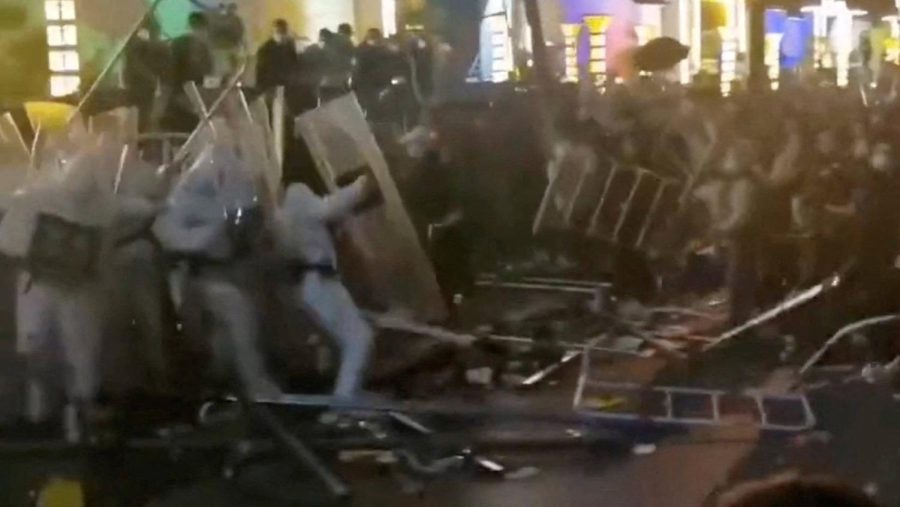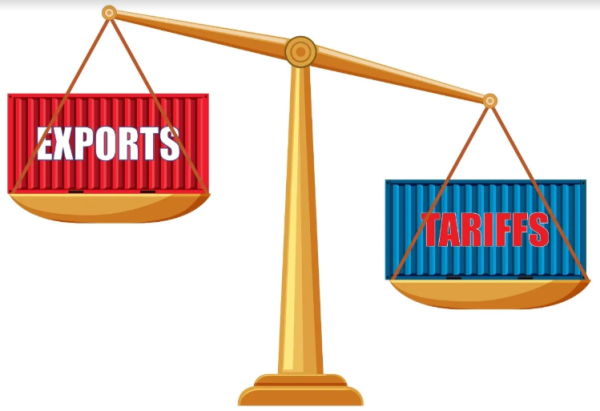Foxconn Protests in China
January 3, 2023
The modern economy depends heavily on supply chains. Companies like Apple, Amazon, and Sony do not manufacture their products from raw materials; rather, they rely on a series of companies to gather natural resources, create components, and ship those components to the factories where they are finally assembled into end products. These manufacturers come from various countries, but many of them, like Foxconn, originate from China, where the government has enacted strict “zero-COVID” policies that worsen living conditions. These issues are compounded by Foxconn’s rocky history with protecting the rights of its workers, and together, they have caused protests that have placed Foxconn and its clients in a difficult position.
Foxconn is a Taiwanese hardware manufacturer, but it operates many factories in mainland China, including the massive iPhone plant in Zhengzhou. It has been controversial for its labor exploitation ever since 2010, when 18 workers in their factory towns attempted suicide. In addition, some of their employees are actually students who work as interns, and workers are often forced to work overtime in order to meet their quota, which contradicts Chinese labor law. In August of 2019, it was revealed that 50% of Foxconn’s workers were part-time, while Chinese law mandates that only 10% can be part-time. These abuses have embroiled both Foxconn and its customers, especially Apple, in controversy.
More recently, the Chinese government has enacted strict COVID-19 policies intended to fully isolate each case of the disease. These restrictions have caused dissent all over Chinese society, including in the factories. The policies have consisted mainly of lockdowns, but in order to stop the spread of the virus without reducing productivity in the factories, the government created a “closed-loop” system, in which workers live at their workplace in order to keep the factories isolated. Foxconn was apparently unable to stop outbreaks of the virus in their factories, despite the frequent quarantines. Workers have also complained that Foxconn has not fulfilled its payment contracts; after many workers resigned due to the restrictions, the company offered a significant bonus for new recruits, but then told the recruits that they would have to work for two months at a lower pay to earn the bonus.
The tension between Foxconn and its workers boiled over in November, when factory workers gathered outside the Zhengzhou plant to protest over the delays in their payment. They were seen smashing windows and surveillance cameras on the campus and struggling with police in hazmat suits.
Foxconn eventually apologized for the mistake, blaming the delay in payment on a technical error. It offered unspecified benefits to employees who left the factory and to the current employees. However, it denied allegations that it had forced new employees to live in the dormitories with infected people. It also insisted that production had not been slowed down due to the protests.
The zero-COVID policy has ended in China, but the consequences of the restrictions may be significant. When the initial COVID-19 restrictions were placed on Zhengzhou, Apple warned that they would have to delay iPhone 14 deliveries. After the recent violence, Apple may be planning to move some of its production out of China to countries like India and Vietnam. Because of the power of the supply chain, shocks in China affect people on the other side of the world, including us at Weddington. However, the diversification of the supply chain into more stable countries may spell some good news for the US economy.










